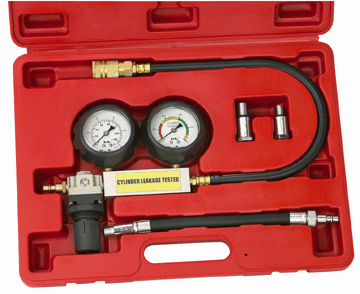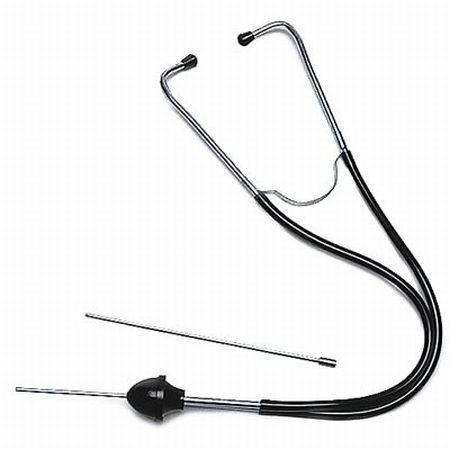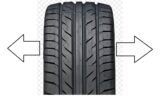No it is not the same as a compression test. A compression test is a gauge that screws into the spark plug hole and reads how much pressure your engine can create and hold by cranking (usually by the starter). Now a Leak down tester also screws into the spark plug hole, however it has its own pressure source (usually from an air compressor) you fill the cylinder with pressure and see what percentage of that pressure is escaping. This is better because you can take an automotive stethoscope (like what the doctors have) and you can listen to different parts of the engine to determine where the leak is coming from/what is worn. Thus you can figure out what and where in EACH cylinder is wrong. Here is the list of the things you can check:
Price of Leak down tested = ~30 bucks on ebay
Automotive stethoscope = ~10 bucks on ebay
Having the engine warmed up will produce the best results because the expansion due to heat makes a better seal, also the engine should have oil in it, a thin film of oil helps the engine create a better seal, and thus to get best results warm up your engine before doing the test if possible.
The find top dead center on the compression stroke for that cylinder, set your compressor to 100psi, turn the knob till you zero out the gauge on the right, then connect the hose from the spark plug hole to your leak down tester, the gauge on the right will be the one to read, that gauge will let you know your leak down percentage
Using a automotive stethoscope if you hear a presure leakage from:
Oil cap/dip stick it is ether the piston rings or the cylinder wall
Radiator reservoir it is ether cracks in your cylinder walls or head gasket.
Air Intake/throttle body it is most likely your intake valves
Exhaust it is most likely your exhaust valves
Here is a video of basically everything i said being done:





Recent Comments